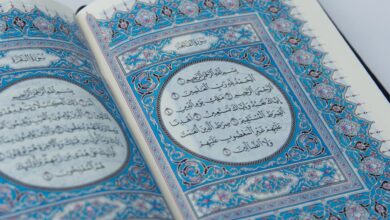

Introduction of Ibadat
Ibadah, a fundamental concept in Islam, refers to the act of worship and devotion to Allah. It encompasses a wide range of activities, including prayer, fasting, charity, and pilgrimage. Beyond being a mere set of rituals, ibadah serves as a profound means to connect with the divine, purify the soul, and attain spiritual fulfillment. This article delves into the significance of ibadah and explores how it transcends routine actions to become a transformative journey towards a higher state of consciousness and closeness to the Creator.
The Essence of Ibadah
In Islamic teachings, ibadah lies at the heart of a Muslim’s life. It is a way to express gratitude, submission, and obedience to Allah, recognizing Him as the sole object of worship and the ultimate source of guidance. The act of ibadah is meant to foster a strong spiritual bond between the individual and their Creator, cultivating a sense of humility, contentment, and inner peace. It is through this dedicated practice that believers can attain Taqwa, a consciousness of Allah’s presence that directs them to avoid evil and pursue righteousness.
Beyond Rituals: The Spiritual Dimension of Ibadah
While the five pillars of Islam—Shahada (faith), Salah (prayer), Zakat (charity), Sawm (fasting), and Hajj (pilgrimage)—are fundamental components of ibadah, their true essence extends beyond the physical observance. Ibadah is not confined to a mechanical performance but entails the genuine engagement of heart, mind, and soul.
- Prayer (Salah): Salah is the cornerstone of a Muslim’s life, involving five daily prayers to commune with Allah. This act of devotion instills discipline, mindfulness, and a constant remembrance of the Almighty, fostering spiritual awareness throughout the day.
- Charity (Zakat): Zakat is the obligation to give a portion of one’s wealth to those in need. It transcends the mere act of giving, as it teaches empathy, compassion, and the importance of sharing resources for the collective well-being of society.
- Fasting (Sawm): The holy month of Ramadan exemplifies the significance of fasting in Islam. Beyond abstaining from food and drink, fasting encourages self-restraint, gratitude, and heightened spiritual consciousness.
- Pilgrimage (Hajj): Hajj is the annual pilgrimage to the holy city of Mecca. It serves as a physical and spiritual journey, symbolizing unity among Muslims and promoting a sense of humility and equality before Allah.
- Faith (Shahada): The declaration of faith signifies the unwavering belief in the oneness of Allah and the prophethood of Muhammad (peace be upon him). This act of bearing witness establishes a strong spiritual foundation for a Muslim’s life.
The Transformative Power of Ibadah
At its core, ibadah is a transformative process that shapes the character and mindset of a believer. Through consistent practice, it cultivates a sense of self-discipline, humility, and resilience. Moreover, ibadah helps individuals confront their weaknesses, seek forgiveness for their shortcomings, and strive towards personal growth and self-improvement.
- Spiritual Nourishment: Ibadah provides spiritual nourishment that sustains and rejuvenates the soul. Regular remembrance of Allah through prayer, recitation of the Quran, and reflection instills a sense of tranquility and inner peace amid life’s challenges.
- Moral and Ethical Uprightness: Ibadah reinforces moral and ethical principles, guiding Muslims towards honesty, integrity, and kindness. The consciousness of being accountable to Allah encourages believers to be just and compassionate in their actions.
- Overcoming Materialism: In a world consumed by material desires, ibadah redirects focus from material possessions towards the eternal and spiritual. It fosters gratitude for the blessings one receives and promotes contentment with what Allah has ordained.
- Connection with Community: Ibadah strengthens the bond within the Muslim community, promoting unity, mutual support, and a sense of belonging. The shared practice of worship and devotion builds a strong social fabric.
Conclusion
Ibadah, the profound concept of worship in Islam, transcends mere ritualistic acts to become a transformative spiritual journey. It instills in Muslims a deep connection with Allah, fostering humility, gratitude, and moral uprightness. By engaging the heart, mind, and soul in devotion, ibadah becomes a path to inner peace, contentment, and a higher state of consciousness. As believers strive to practice ibadah consistently, they embark on a lifelong journey of spiritual fulfillment and closeness to their Creator, shaping them into better individuals and contributing positively to society.
What is Ibadat in Islam?
Ibadat, in Islam, refers to acts of worship and devotion to Allah, the One and Only God. It encompasses various rituals and practices that Muslims undertake as a means of demonstrating their faith, gratitude, and obedience to Allah.
What are the essential components of Ibadat?
The essential components of Ibadat in Islam are the five pillars: Shahada (faith), Salah (prayer), Zakat (charity), Sawm (fasting during Ramadan), and Hajj (pilgrimage to Mecca). These pillars form the foundation of a Muslim’s spiritual life.
Is Ibadat limited to specific rituals?
While the five pillars are central to Ibadat, it extends beyond rituals. Ibadat encompasses any action or intention performed with the aim of seeking Allah’s pleasure and aligning one’s life with His teachings. Acts of kindness, honesty, and compassion are also considered forms of Ibadat.
What is the significance of Salah (prayer) in Ibadat?
Salah is the most crucial form of Ibadat, as it allows Muslims to establish a direct connection with Allah. Through five daily prayers, believers seek guidance, forgiveness, and express their submission to the Almighty.
How does fasting (Sawm) contribute to Ibadat?
Fasting during the holy month of Ramadan is an essential aspect of Ibadat. It fosters self-discipline, self-control, and empathy towards the less fortunate. By abstaining from food and drink during daylight hours, Muslims draw closer to Allah and purify their souls.
What role does Zakat (charity) play in Ibadat?
Zakat is the act of giving a portion of one’s wealth to those in need. It promotes social justice, compassion, and solidarity within the community. Paying Zakat is a way of acknowledging that all wealth comes from Allah and should be shared with others.
Why is Hajj (pilgrimage) considered a significant part of Ibadat?
Hajj is the annual pilgrimage to the holy city of Mecca and is obligatory for Muslims who are physically and financially able. It symbolizes unity among Muslims worldwide and represents the ultimate submission to Allah’s command.
Can Ibadat be done in solitude or is congregation necessary?
While Ibadat can be performed individually, congregational worship holds special merit in Islam. Gathering in mosques for Salah and other acts of worship fosters a sense of community, solidarity, and mutual support among believers.
Can non-Muslims engage in Ibadat?
Ibadat is specific to the Islamic faith, but individuals of other beliefs can engage in acts of devotion and worship according to their own religious traditions. However, the five pillars of Islam are exclusively for Muslims.
How does Ibadat contribute to personal growth and spirituality?
Ibadat is a transformative journey that helps individuals grow spiritually. Through consistent practice, believers cultivate virtues such as patience, gratitude, and humility, leading to a deeper understanding of their purpose and a closer relationship with Allah.





